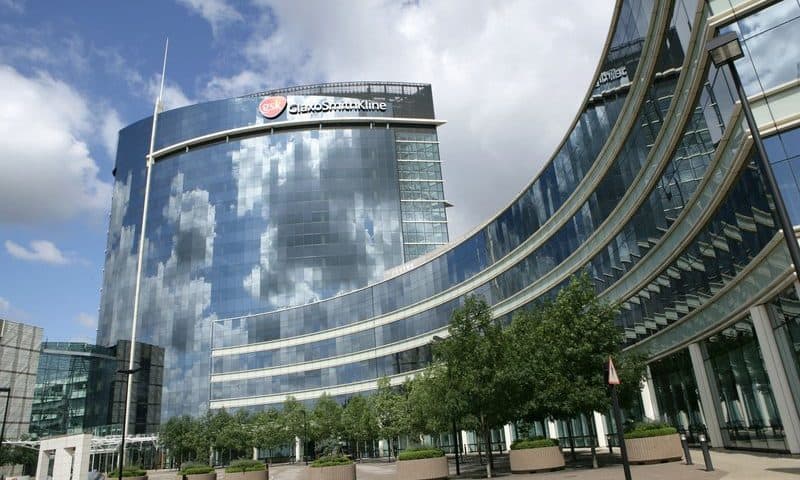GlaxoSmithKline is penning an upfront and biobucks combo deal worth up to $2.2 billion with Fierce 15 winner Alector in neurodegenerative diseases.
The deal sees the London-based company sign up with the U.S. biotech to co-develop and sell two “next generation” drugs for major neurodegenerative diseases including Parkinson’s and Alzheimer’s.
The deal is worth a meaty $700 million upfront with up to an additional $1.5 billion in milestone payments, if all goes to plan and the two meds get to the market.
Those assets are formed of two monoclonal antibodies: AL001 and AL101, which belong to a new field of research known as “immuno-neurology” that seeks to harness the body’s own immune system to fight neurodegenerative disease and that the pair hopes will have the same successes seen with immuno-oncology in cancer.
The two antibodies work by seeking to elevate levels of a protein in the brain called progranulin, which helps regulate the brain’s immune activity as well as the ability of neurons (which affect a person’s memory and ability to perform everyday tasks) to survive.
Decreased levels of proganulin are genetically linked to many neurodegenerative disorders.
AL001 is currently in late-stage tests for a form of dementia called frontotemporal dementia (FTD) with a specific gene mutation, which is found most frequently in people under 65. Results from the clinical trial are slated for the end of 2023.
The drug is also currently in a phase 2 study in symptomatic FTD patients with a mutation in the C9orf72 gene, and is planned to enter another midstage test for amyotrophic lateral sclerosis (ALS) in the second half of next year.
AL101, meanwhile, is currently in early-stage trials and is designed to treat patients suffering from more prevalent neurodegenerative diseases including Parkinson’s and Alzheimer’s.
The deal comes amid a mini boom in Alzheimer’s research after the FDA’s controversial approval of Biogen’s drug Aduhelm, seemingly telling everyone that the water is once again warm in Alzheimer’s research after years of freezing over.
‘New’ GSK
This also comes amid a pivotal point for GSK itself, which has spent the last month trying to convince analysts, investors and the media that it’s on the right track for success after a sustained attack, ramped up yesterday by Elliott Management, an activist investment group that wants CEO Emma Walmsley out, and a shake-up of its business.
This comes after a series of flops and setbacks in the clinic over the past 18 months, including fumbling the COVID-19 vaccine race (and now firmly at the back), misses in key cancer trials and a feeling that its pipeline still lacks any real innovation.
The U.K.-based Big Pharma said during its R&D day in June, via its “New GSK” platform, that its major change will be focusing in on mRNA for flu vaccines and away from traditional approaches—something that is now late in the game, given than BioNTech-Pfizer and Moderna, as well as now Sanofi-Translate Bio, are steaming ahead here in COVID and soon flu as well.
It also has much of its mRNA tech know-how from German partner CureVac, which last month saw a woeful 48% efficacy for its COVID vaccine, all but ending its hopes of getting an approval. GSK is focused on a second-generation vaccine from its collab with the biotech, but the optics aren’t great. There was little else to note from its R&D update that excited analysts.
The Alector deal is something different. It boosts its neuro pipeline and takes it outside its cancer/vaccine focus of late, though falls in line with its focus on research through the power of the immune system.
Neuro diseases: An immune disorder
So what do we know about its new partner? Alector, founded back in 2013, saw the company unite Genentech veteran Arnon Rosenthal, Ph.D., Columbia University professor Asa Abeliovich, M.D., Ph.D., and Adimab founder Tillman Gerngross in pursuit of a simple hypothesis: What if drug developers have been approaching neurodegenerative disease all wrong?
Alector’s guiding theory is that neurodegenerative disease is, at its core, an immune disorder. That means the brain-degrading processes at play in ailments like Alzheimer’s are the result of the immune system failing to identify certain pathogens before they get out of hand.
Poring over swaths of genetic data, Alector’s founders noted that many of the genes implicated in Alzheimer’s, Parkinson’s, dementia and other disorders also modulate the immune system, a promising trail they believe could lead to first-of-their-kind therapies.
Alector is looking to do for neurodegenerative disease what immunotherapies have done for cancer. For the last decade in oncology, the prevailing focus was on targeted therapies, genetically honed treatments that performed well in stratified groups of patients. But the rise of immuno-oncology, therapies designed to galvanize a natural attack on tumors has presented a more integrated approach to treatment.
Alector’s work could have the same effect in neurodegeneration, moving away from the debates around tau and amyloid beta and instead embracing a unified theory of pathogen development.
It now has that hefty $700 million to try to prove its theory and a big backer, which needs a win, behind it. It’s not the only biotech going after ALS and FTD with a genetic component: Fellow Fierce 15 winner QurAlis is also focused in on these areas, although coming in from a different angle. Alector’s shares jumped 41% premarket on the pact.
Neuro is notoriously difficult to navigate from the clinic onto the market: Biogen managed this not though scientific skill, but a mixture of luck, desperation on all sides and questionable decision-making. GSK is making a fairly large bet here, where R&D for ALS, Parkinson’s and Alzheimer’s has been a veritable graveyard for decades.
It’s a bold move, but we’ll wait and see whether this pays off and whether it eases any pressure from the company’s C-suite.

